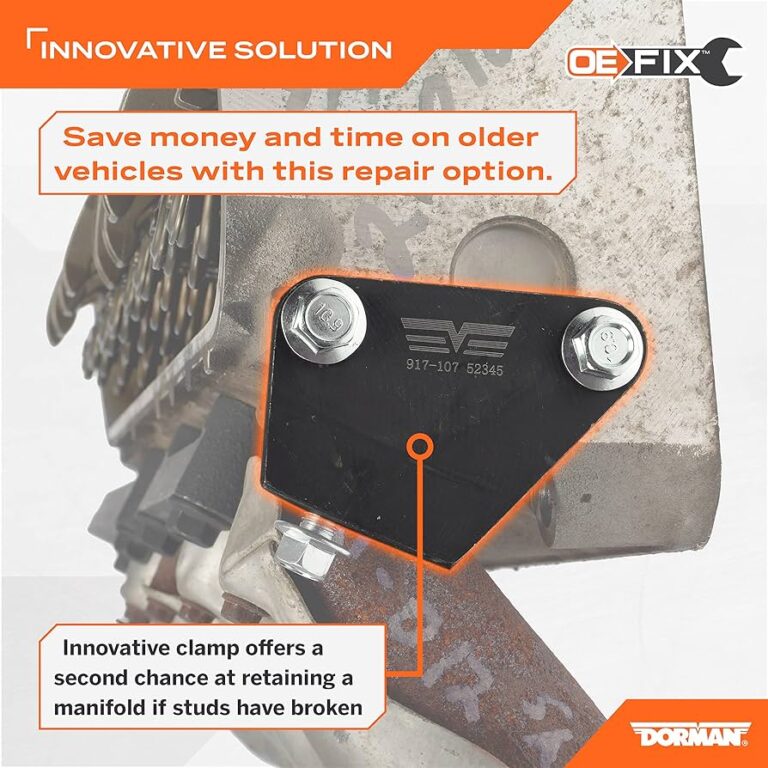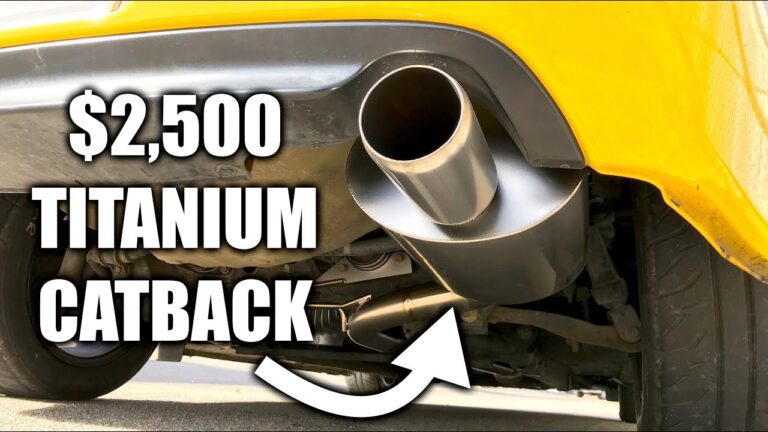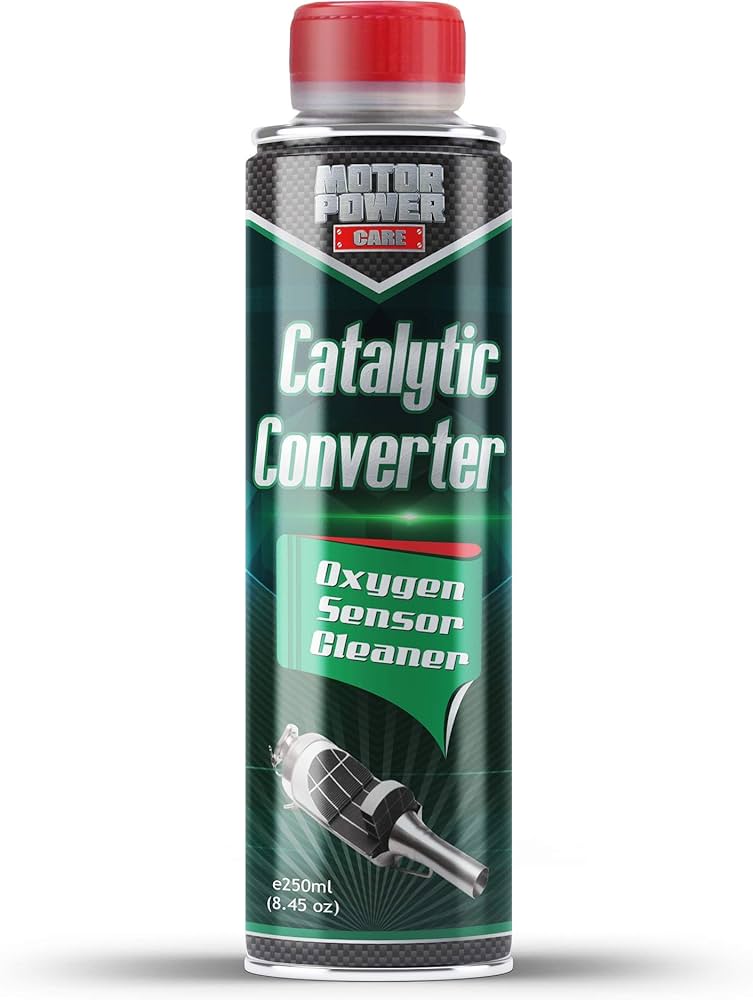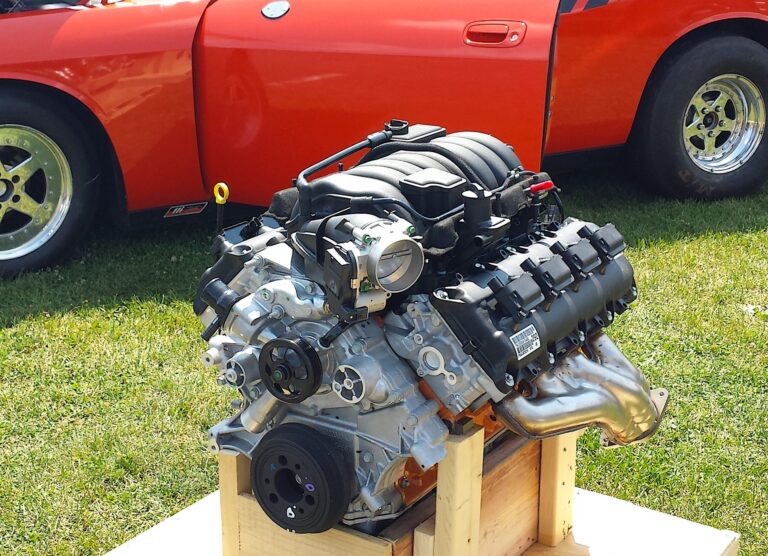How to Fix Exhaust Pipe: 7 Expert Tips for Optimal Performance
To fix an exhaust pipe, start by identifying the issue, such as a crack or leak. Then, determine whether a repair or replacement is necessary.
Why Is The Exhaust Pipe Important?
The exhaust pipe plays a crucial role in the proper functioning of a vehicle. It is responsible for disposing of the harmful gases that are produced during the combustion process. Firstly, the exhaust pipe acts as a conduit, allowing the gases to flow from the engine to the outside environment. Secondly, it aids in maintaining vehicle performance by helping to improve engine efficiency and reducing backpressure. Backpressure can have a negative impact on engine performance, leading to a decrease in power and fuel economy. Moreover, the exhaust pipe contributes to noise reduction by guiding the exhaust gases through a series of chambers and baffles, reducing the sound produced by the engine.
However, if the exhaust pipe is damaged or malfunctioning, it can lead to several consequences. A damaged exhaust pipe may result in increased noise levels and engine vibrations. It can also affect the overall performance of the vehicle, leading to decreased power and fuel efficiency. Furthermore, a damaged exhaust pipe can cause harmful gases to leak, which can pose a threat to both the environment and the passengers. It is vital to regularly inspect and maintain the exhaust pipe to ensure its proper functioning and to prevent any potential issues.
Signs Of An Exhaust Pipe Problem
Exhaust pipe problems can lead to serious issues with your vehicle if not addressed promptly. It is important to pay attention to the signs of an exhaust pipe problem in order to avoid expensive repairs and potential damage to your engine and emissions system.
Common symptoms of exhaust pipe issues include loud noises coming from the exhaust, excessive smoke emitting from the tailpipe, and a noticeable decrease in fuel efficiency. These visual cues can indicate damage, such as rust or holes in the pipes. Additionally, a faulty exhaust pipe can negatively impact your engine’s performance and increase harmful emissions.
If you suspect any issues with your exhaust pipe, it is crucial to have it inspected and repaired by a qualified mechanic. Ignoring these problems can not only harm your vehicle’s performance but also pose a risk to your health and the environment.
How To Diagnose Exhaust Pipe Problems
Inspecting for leaks or cracks in your exhaust pipe is crucial to ensure its proper functioning. Examine the pipe carefully and look for any visible signs of damage such as holes, gaps, or cracks. These can result in exhaust leaks, which not only affect the performance of your vehicle but also pose a safety risk due to the release of toxic gases. Next, check for rust or corrosion on the pipe’s surface. Rust can weaken the pipe and cause it to deteriorate over time. If you notice any corrosion, it is important to address it promptly to prevent further damage. Utilizing diagnostic tools can also help identify exhaust pipe problems that may not be visible to the naked eye. An exhaust pressure gauge can measure the pressure in the system, providing valuable insights into potential issues. Similarly, an exhaust gas analyzer can analyze the composition of the exhaust gases, helping to identify problems with the engine or other components.
Fixing Exhaust Pipe Issues: Diy Methods
Dealing with exhaust pipe problems can be a hassle, but with a few do-it-yourself tips, you can save time and money. Regular inspection and maintenance are crucial to keep your exhaust pipe in good condition. Keep an eye out for cracks, holes, or loose connections as these can lead to leaks and decrease the efficiency of your vehicle. One common DIY method is using exhaust tape or band clamps to fix small cracks temporarily. For larger cracks or holes, welding or patching might be necessary. Another important tip is to check the rubber hangers that support the exhaust system and replace any worn-out ones. Applying a rust inhibitor or heat-resistant paint can help prevent further damage. Finally, don’t forget to insulate your exhaust pipe with heat wrap or heat shields to protect sensitive components nearby.
| DIY Tips for Fixing Exhaust Pipe Issues: |
|---|
| Regular inspection and maintenance to identify any problems early on. |
| Use exhaust tape or band clamps for temporary fixes on small cracks. |
| Consider welding or patching for larger cracks or holes. |
| Check and replace worn-out rubber hangers that support the exhaust system. |
| Apply rust inhibitor or heat-resistant paint to prevent further damage. |
| Insulate the exhaust pipe with heat wrap or shields to protect nearby components. |
| Seek professional help if the issue seems complex or beyond your capabilities. |
When To Seek Professional Help
Identifying complex exhaust pipe problems
If you notice any of the following issues with your exhaust pipe, it’s best to consult a professional for assistance:
| 1. Loud noises: | If your exhaust pipe is making unusual loud noises, such as rattling or hissing sounds, it could indicate a serious problem that requires professional attention. |
| 2. Decreased performance: | If you experience a decrease in your vehicle’s overall performance, including reduced acceleration or difficulty in maintaining speed, it might be due to an exhaust pipe issue that requires expert diagnosis. |
| 3. Exhaust fumes: | Unusual or strong smells of exhaust fumes inside the cabin or around the vehicle could mean there is a leak or blockage in the exhaust system. Seeking professional help is crucial to avoid potential health hazards. |
Instances to consult a professional
If you are uncertain about fixing exhaust pipe problems on your own or lack the necessary tools and expertise, it’s advisable to reach out to a professional. They have the knowledge and experience to accurately diagnose and repair complex exhaust pipe issues.
Benefits of professional repair
Engaging a professional for exhaust pipe repairs offers several advantages:
- Expert diagnosis: Professionals can quickly identify the specific problem and provide accurate solutions, saving time and potential frustration.
- Quality repairs: Professionals have access to high-quality replacement parts and adhere to industry best practices, ensuring a reliable and long-lasting repair.
- Expertise and experience: With their extensive knowledge and experience, professionals can handle complex repairs and ensure the job is done correctly.
- Warranty coverage: Many professional repair services provide warranties on their work, giving you peace of mind and protection against future issues.

Credit: www.thisoldhouse.com
How To Prevent Exhaust Pipe Issues
Regular maintenance and inspections are essential in preventing exhaust pipe issues. By regularly checking and maintaining your exhaust system, you can minimize damage and wear, ensuring optimal performance. Here are some tips to help you prevent exhaust pipe problems:
- Inspect your exhaust system regularly for any signs of damage, such as leaks or rust.
- Ensure that all connections are tight, and any loose or damaged parts are repaired or replaced.
- Use high-quality materials when maintaining or replacing components of your exhaust system.
- Keep your exhaust system clean and free from debris to prevent blockages and obstructions.
- Avoid excessive idling or revving, as this can cause overheating and damage to your exhaust system.
- Regularly check your vehicle’s fuel and emission systems to ensure they are functioning properly.
By following these preventative measures, you can prolong the lifespan of your exhaust pipe and avoid costly repairs in the future.
Frequently Asked Questions Of How To Fix Exhaust Pipe
Can You Repair An Exhaust Pipe?
Yes, an exhaust pipe can be repaired by a professional technician using various methods such as welding or patching. It is important to address any issues with the exhaust pipe promptly to prevent further damage and to ensure the proper functioning of the vehicle’s exhaust system.
Is Exhaust Pipe Expensive To Fix?
The cost of fixing an exhaust pipe can vary, but it is generally not too expensive. Car owners should expect to pay a reasonable price for repairs and replacements.
How Do You Fix A Leaking Exhaust Pipe?
To fix a leaking exhaust pipe, you can try using a high-temperature exhaust repair tape or sealant. Wrap the tape tightly around the leak or apply the sealant directly to the affected area. Make sure the pipe is clean and dry before applying.
If the damage is severe, it’s best to consult a professional mechanic.
Can You Drive With Broken Exhaust Pipe?
Driving with a broken exhaust pipe is not recommended due to potential safety hazards and legal consequences. The exhaust system plays a crucial role in redirecting harmful emissions away from the vehicle and reducing noise. It is best to have the exhaust pipe repaired or replaced by a professional as soon as possible.
Conclusion
To wrap up, fixing an exhaust pipe is a task that requires some technical knowledge and the right tools. By following the steps outlined in this guide, you can save both time and money by avoiding a trip to the mechanic.
Remember to prioritize safety, take your time, and double-check your work. With a little patience and effort, you’ll have your exhaust pipe fixed and your vehicle running smoothly again in no time. Happy repairing!







